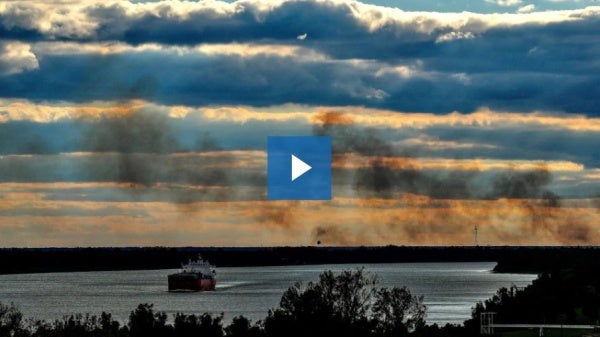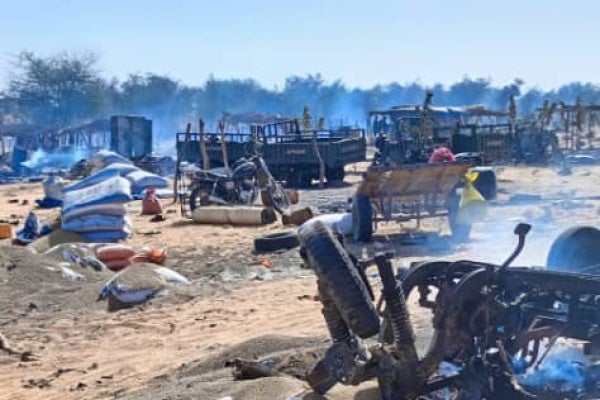Lire la version en français / Hier die deutsche Ausgabe lesen / Lea la versión en español
It’s not called “Cancer Alley” for nothing.
The 85-mile stretch of the Mississippi River between New Orleans and Baton Rouge, in the US state of Louisiana, got that name for a reason. Some 200 fossil fuel and petrochemical operations dominate the area, and they’ve wrecked the health of local residents.
The science of what’s happening here is clear. “The places where you have more industrial pollution, you have higher cancer rates,” says Kimberly Terrell, a research scientist from Tulane University who has investigated the area.
In fact, parts of Louisiana’s Cancer Alley have the highest risk of cancer from industrial air pollution in the United States.
And cancer is hardly the sole health problem linked to the area’s fossil fuel industries.
In a new HRW report, Cancer Alley residents describe not only cancer and its devastating impacts, but also elevated rates of maternal, reproductive, and newborn health, as well as respiratory ailments.
Entire communities have been devastated by cancer, the deaths of family and friends, missed days of work and school due to illness, and children rushed to emergency rooms suffering from asthma attacks. These harms are disproportionately borne by the area’s Black residents – many of whom have been organizing to fight back through public activism and legal action.
Sharon Lavigne, founder of RISE St. James, a faith-based environmental justice organization in Welcome, St. James Parish, in Louisiana’s Cancer Alley, explains in a new video that what industry is doing feels like a death sentence. “Like we are being cremated, but not getting burnt, but being polluted, dying from inhaling the industries going into our bodies, going through our nostrils.”
But she and many others in the area are unbowed: “There’s no place like home. I was born and raised here, and this is where I want to stay. The industry will have to go, not us. And we will not be a sacrifice for the industry.”
She’s right, of course. No one should have to die, no mother have to suffer, no child have to get sick, because of humanity’s need for energy. We know what’s causing the problem, and we know it’s fixable.
For decades, however, government agencies responsible for the protection of the environment and the wellbeing of citizens, haven’t been doing their job.
Louisiana’s regulatory authorities, particularly the Louisiana Department of Environmental Quality, have failed to address the severity of harm from fossil fuel and petrochemical industries and failed to enforce minimum standards set by the federal government. In short, they failed to protect people’s health.
The US Environmental Protection Agency shares the blame by not ensuring federal laws and mandates are enforced in the state of Louisiana.
People around the world often talk about the future dangers of climate change in general, global ways. That’s important, of course – essential, in fact. But we also need to understand how humanity’s addiction to burning fossil fuels, the largest driver of the climate crisis, impacts people in deadly ways in their local communities, on the ground and in the air, right now.
What's happening in Louisiana’s Cancer Alley is indeed like a sacrifice, a daily human sacrifice on the altar of our global fossil fuel cult.
The regulatory agencies need to do their job, governments need to uphold their obligations, and these human sacrifices must end.









